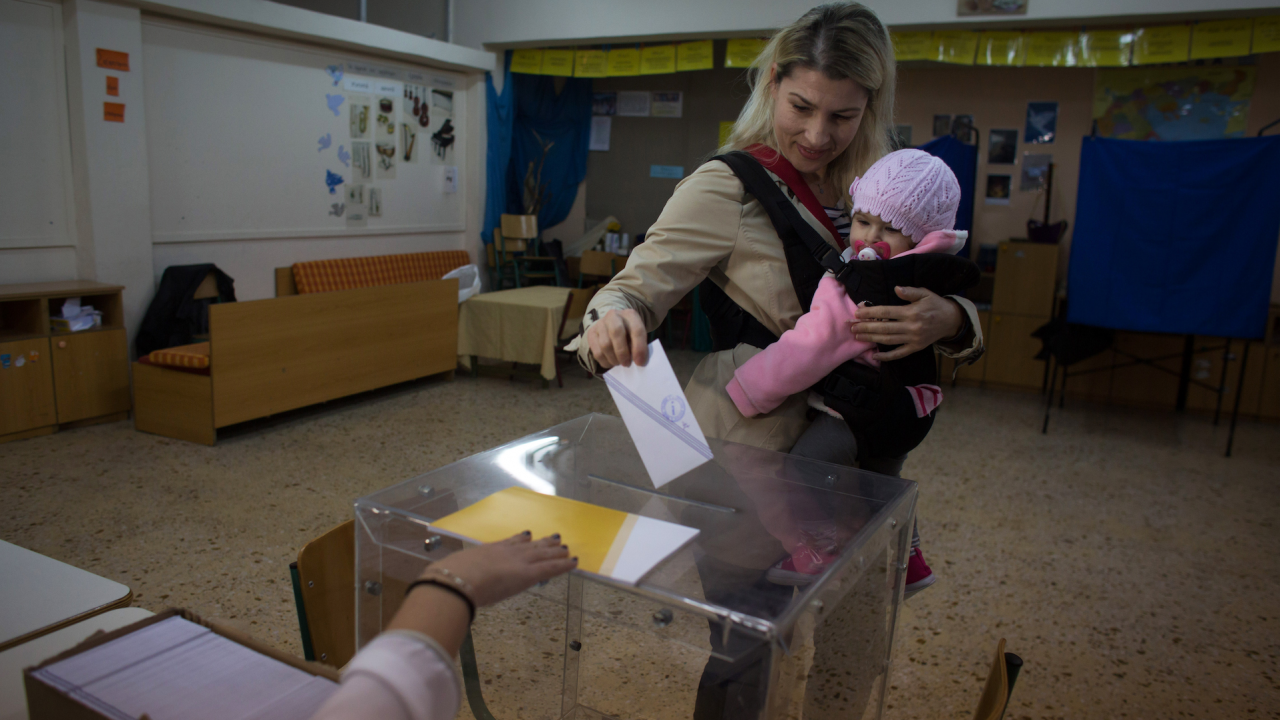Parliamentary elections in Greece will be in April or May, Prime Minister Kyriakos Mitsotakis said last night at a meeting of the governing bodies of the ruling New Democracy party, ANA-MPA reported.
Already last week, he announced that the vote would be in the spring and confirmed strong predictions that the election would be produced earlier than the July deadline.
Mitsotakis also made it clear yesterday that his party would focus on holding new elections a few weeks after the first, with the latter seeking an absolute majority in the Greek parliament and once again forming an independent government.
The difference between the first election and a possible second a few weeks later will be that the first will be produced under the ordinary proportional electoral system adopted under SYRIZA's rule in 2015, in which each party gets as many seats in parliament as they correspond proportionally to her election result.
In 2020, however, the New Democracy majority brought back the old proportional system with a bonus, where the first political force gets 50 extra seats to make it easier to form a stable majority.
In Greece, however, the changes in the electoral legislation come into force not in the first, but in the second elections after their adoption, in order to avoid the conjunctural change of the rules by the rulers in their favor.
We are already entering the final stages, it is a public secret that the clock is counting down, I have said it publicly, I am saying it privately to you too - it is not a secret - the elections will be either in April or in May, the first elections.
The second ones will be 4 to 5 weeks later, so I think you can tell we're on a very tight schedule.
We must have no doubt that the result of the first election will be what ultimately determines developments and we want to have such a strong result that it does not in any way cast doubt on our ability to achieve an absolute majority in the second vote.
This is the goal, declared the Greek Prime Minister and leader of "New Democracy".
Commenting on the topic on Sky TV said this again puts April 9, which falls on Palm Sunday, as the likely date for the election.
The only problem with this scenario is that political contacts to hand over exploratory mandates would coincide with Holy Week, and possibly continue beyond Easter, which could anger the Church, although she has not yet given any indication of any objections. , notes BTA.
However, if Mitsotakis focuses on later elections, i.e.
after Easter, many believe that there is no reason why it should not go all the way to May, because the increase in pensions and the minimum wage, the cancellation of the "solidarity contribution" introduced during the financial crisis in the public sector, the introduction of the so-called
market pass, i.e.
government subsidies for buying essential goods, good results in tourism and reaching an investment credit rating will create a favorable atmosphere for the government.
Prime Minister Mitsotakis announced when the elections will be held in Greece
The television station recalls that in 2012, 41 days were needed between the holding of two votes - in May and in June.
In Greece, the exploratory mandates are handed successively to the top three political forces in the parliament, each of them having three days to propose a government.
Of course, the mandate can be returned unfulfilled on the same day.
According to the latest survey by the sociological agency "Alco", published yesterday by "Proto Theme", the share of voters who would like an independent government to be formed after the elections increased from 37 to 41 percent.
However, a larger share, 46 percent, believe that a coalition government can also be achieved, but the trend in these sentiments is downward.
In his commentary, Sky said it was likely that such sentiment among voters would lead to a mobilization of support for New Democracy in a likely second election.
The percentage that would be needed to obtain an absolute majority under the bonus system depends on how many parties fail to pass the 3 percent barrier, but is estimated to be around 37.5 percent in the current situation.
In this situation, it is believed that success for New Democracy would be to get about 33 percent in the first election with the prospect of mobilizing the electorate in the second.
Today, the second part of the survey will be published, which will be dedicated to support for the various political forces.
Various polls conducted at the end of last year predicted New Democracy to get between 36.7 and 37.5 percent of the vote, and the second force, SYRIZA, between 27.1 and 29.5 percent.
Greece
elections
